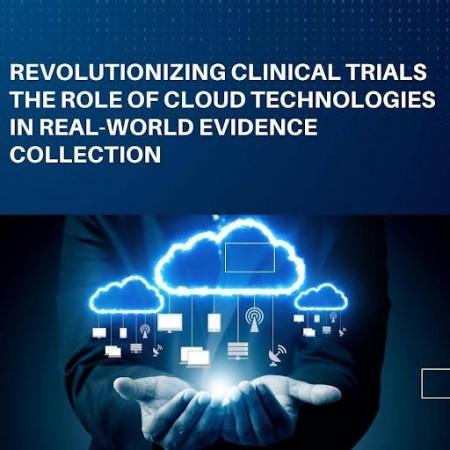
In this modern era, Jaswanth Kumar Vuggumudi has explored the impact of cloud technologies on clinical trials and real-world evidence (RWE) collection. His insights highlight how cloud-based solutions are transforming data management, improving efficiency, and enhancing security in the healthcare sector.
Harnessing Cloud Technology for Seamless Data Management
The adoption of cloud technologies in clinical trials has enabled real-time data collection and integration across multiple platforms. These systems facilitate automatic data validation, significantly reducing errors associated with traditional paper-based methods. With electronic data capture (EDC) platforms, clinical trials experience a drastic reduction in data entry time, enabling quicker decision-making and more accurate research outcomes.
Enhancing Security and Compliance in Clinical Trials
Security remains a major concern in healthcare, particularly in handling sensitive patient data. Cloud technologies have addressed these challenges through advanced encryption techniques and role-based access controls. By implementing multi-layered security protocols, these platforms ensure data integrity and compliance with regulatory standards, reducing breaches and unauthorized access attempts.
Accelerating Research Through Real-World Evidence (RWE)
The integration of RWE into clinical research has provided valuable insights into treatment effectiveness and patient outcomes. Cloud-based solutions streamline access to vast datasets from electronic health records (EHRs), wearable devices, and patient registries. This accessibility allows researchers to analyze patterns and trends, ultimately enhancing healthcare decision-making processes.
Artificial Intelligence and Machine Learning: The Future of Clinical Trials
Cloud technologies have opened the door for AI and machine learning to play a pivotal role in clinical research. These innovations enable predictive analytics for patient enrollment, risk assessment, and monitoring, improving the overall efficiency of trials. AI-driven models can process massive datasets with high accuracy, reducing trial completion times and associated costs.
Machine learning algorithms also enhance patient stratification by identifying the right candidates for specific clinical trials, optimizing recruitment, and improving success rates. With AI's ability to detect anomalies and predict potential side effects, trials can be conducted with greater confidence and reduced risks.
Remote Monitoring and Patient-Centric Approaches
The global shift toward decentralized clinical trials has been significantly supported by cloud-based platforms. Remote monitoring capabilities allow researchers to track patient progress in real-time, reducing the need for on-site visits. This patient-centric approach enhances engagement and compliance while ensuring data accuracy and trial continuity.
Patients now have the flexibility to participate in trials from their homes, reducing travel burdens and improving retention rates. Digital health applications integrated with cloud platforms provide personalized feedback, enhancing the patient experience and adherence to protocols.
Cost Efficiency and Operational Improvements
Cloud adoption has led to substantial cost reductions in clinical trials, cutting operational expenses by minimizing manual data processing and optimizing resource allocation. Organizations leveraging cloud solutions report a decrease in trial delays and increased efficiency in regulatory compliance, ultimately accelerating the path to market for new therapies.
By eliminating redundant processes and automating data collection, cloud-based trials reduce the administrative workload on researchers and allow them to focus on data-driven insights and innovative research methodologies. These cost savings are crucial in expanding the scope of trials and making innovative treatments more accessible to patients worldwide.
In conclusion, as cloud technologies continue to evolve, their impact on clinical trials and RWE collection will expand, fostering more efficient, secure, and data-driven research methodologies. Jaswanth Kumar Vuggumudi's work underscores the significance of these advancements, emphasizing their role in shaping the future of healthcare innovation. The synergy between cloud computing and emerging technologies like blockchain and the Internet of Things (IoT) further strengthens data security and interoperability. With enhanced collaboration and real-time analytics, cloud-based clinical trials are setting new benchmarks in the industry, paving the way for faster drug development and improved patient outcomes.

















